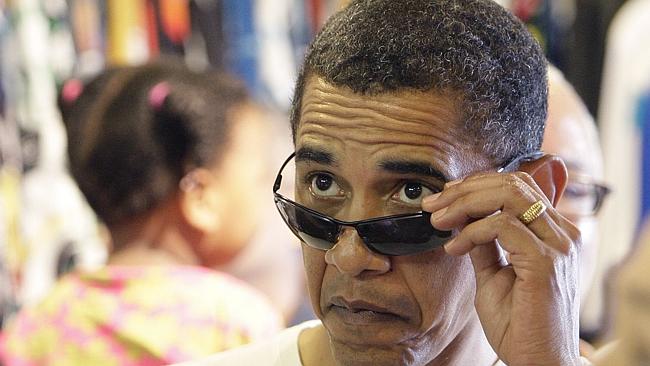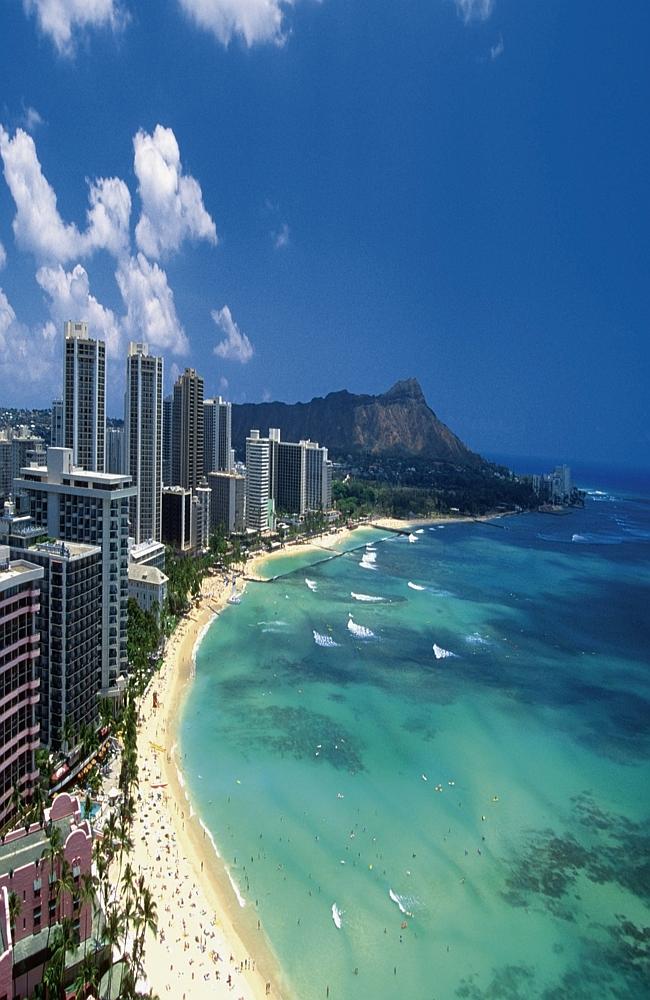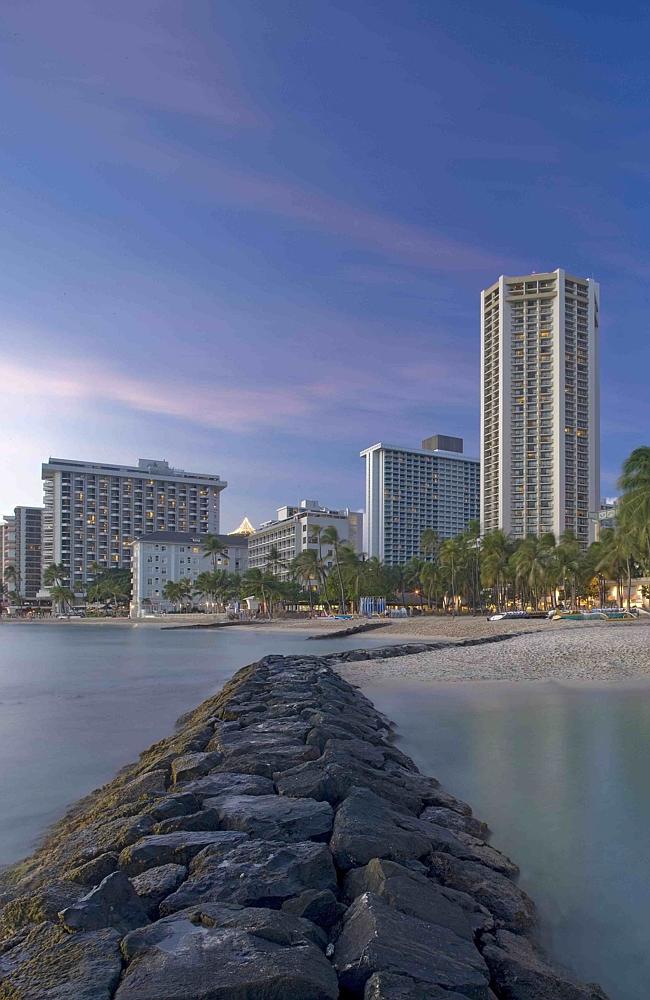Going on a holiday to Hawaii? Here are 27 words you need to know
WE ALL know "aloha" is an important word in the Aloha state, but we were surprised - shocked, really - to learn that visitors need to know an additional 26 words to really navigate the islands.

WE ALL know "aloha" is an important word in the Aloha state, but we were surprised - shocked, really - to learn that visitors need to know an additional 26 words to really navigate the islands.
From understanding the weather report to reading menus, you'll need the below vocabulary. It includes traditional Hawaiian words as well as Hawaiian pidgin - a unique form of creole that draws from the state's ethnically diverse background (Portuguese, Cantonese, Korean, Filipino, Japanese, etc.).
So study up, travellers. You don't want to be caught touching the honu because you didn't kÅkua.
1. Aloha
A catch-all word of good intentions and feelings. Used as a greeting or parting, but also means love, affection, kindness and goodness. In Hawaii, people do things with aloha: drive, surf, work and live.
2. Mahalo
Thank you. Even though it is labelled on most waste bins, mahalo does not mean "trash."
3. KÅkua
Help or support. Heard most frequently in the phrase, "Mahalo for your kokua" (thank you for your assistance).
4. & 5. Mauka & Makai
Mauka is towards the mountain; makai is towards the ocean. The two are used when giving directions on the islands.
6. Poke (POH-keh)
Deliciously yummy cubes of raw seafood (typically ahi tuna) mixed with sauces and onion. Called a poke bowl when served over white rice.

7. & 8. Windward & Leeward
The windward side of an island is exposed to the prevailing wind and is the wetter side. The leeward side is protected from the prevailing wind and is typically the drier side.
9. Pond
Another catch-all word. It is often defined as righteousness, but can also mean proper, moral, or fair.
10. Vog
Volcanic smog that periodically wafts over the islands from the volcano on the Big Island. Vog results in allergy symptoms for many.
11. Haole
Traditionally means a foreigner, but mostly refers to white people now. Can be derogatory, but not always.
12. Howzit?
How are you? A common and informal greeting. Used often in conjunction with "braddah," which is a colloquial term for "brother" or "friend."
13. Honu
Green sea turtle. These are endangered in Hawaii and signs on the beach often warn that touching them can result in hefty fines.
14. ʻOhana
Family, but used beyond blood relations to express love and commitment within communities, work places, etc.
15. ʻOno
Delicious. Used most often in combination with "grinds," a term for food. Hence, ʻono grinds means delicious food.

16. Malasada
Brazilian doughnuts, aka, the best fried dough you'll ever eat.
17. Da kine
Whatchamacallit. An amazing versatile and vague phrase you can use when you don't want to actually use words.
18. KamaÊ»Äina
Literally, child of the land. Used to describe any long-term resident of the Hawaiian Islands, regardless of racial background. Used most often in reference to Kamaʻaina discounts, which locals can take advantage of. ("Kanaka maoli" commonly refers to people of full native Hawaiian decent.)
19. Keiki
Children.
20. Lanai
Balcony or patio.
21. Pau
Done or finished. Used most often in reference to Pau hand, or "after work," to mean happy hour.
22. & 23. Wahine & KÄne
Women and Men - important for bathroom distinctions.
24. Lei
A necklace made of flowers, shells, leaves, or kukui nuts. Contrary to most tourists' expectations, leis are a normal part of Hawaii life for both men and women. Locals wear them to celebrate special occasions like birthdays or promotions.
25. Pupu
Appetiser.
26. Aunty & Uncle
What children are taught to call elders, regardless of familial connection.
27. Shaka
The hand gesture of extended thumb and pinky. It generally symbolises the "aloha spirit," or the feeling of gratitude, friendship, understanding, or solidarity. Drivers will often use it on the road when you let them in, etc.
Let us know what words we missed in the comments section below.


